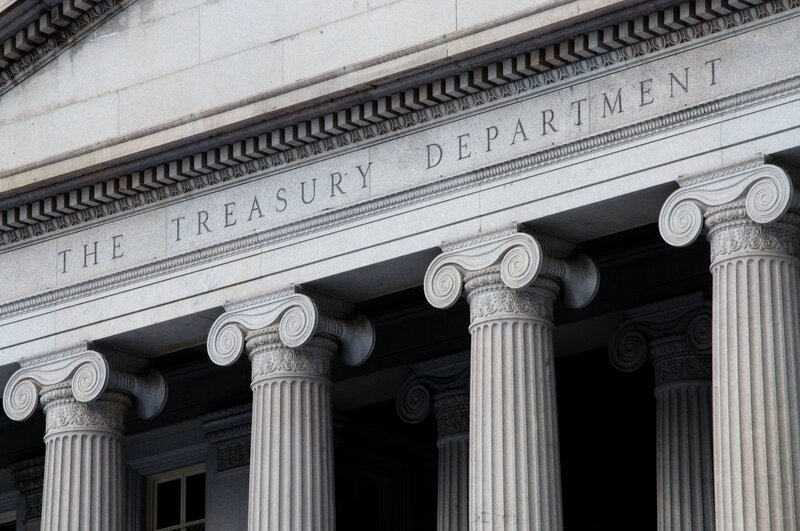Vietnam no longer labeled as currency manipulator: US Treasury
The US Treasury of Department would continue its enhanced engagement with Vietnam.
There is insufficient evidence to make a finding that Vietnam manipulates its exchange rate for purposes of preventing effective balance of payments adjustments or gaining unfair competitive advantage in international trade.
| US Department of Treasury. Source: Svitlana Kravchenko/US Embassy in Ukraine |
US Department of Treasury made the statement in its latest report on foreign exchange policies of major trading partners of the US, announcing a contradict view to its previous report released on December 16, 2020.
In addition to Vietnam, Switzerland and Taiwan (China) have also been dropped from the list of currency manipulators.
The US Treasury Department also noted that it has been working with the Vietnamese authorities since early 2021 to develop “a plan with specific actions to address the underlying causes of Vietnam’s currency undervaluation.”, saying enhanced engagement with Vietnam will continue in the coming time.
Promptly after Vietnam being labeled as currency manipulator last December, the State Bank of Vietnam (SBV), the country’s central bank, released a statement rejecting the claim, saying the country’s main objective of its foreign-exchange policy is to control inflation and stabilize the macro-economy.
The SBV stressed Vietnam continues to give priority to a stable and sustainable trade-economic relation with the US and will strive to ensure a harmonized and fair-trade relations with the US.
Under the Trade Facilitation and Trade Enforcement Act of 2015, the US uses three criteria to determine if a country is a currency manipulator, including (1) a significant bilateral trade surplus with the United States is one that is at least US$20 billion over a 12-month period; (2) a material current account surplus is one that is at least 2% of gross domestic product (GDP) over a 12-month period; and (3) persistent, one-sided intervention occurs when net purchases of foreign currency are conducted repeatedly, in at least six out of 12 months, and these net purchases total at least 2% of an economy’s GDP over a 12-month period.
While removing a number of countries from the manipulation list, the US announced a Monitoring List of major trading partners that merit close attention to their currency practices and macroeconomic policies, comprising China, Japan, South Korea, Germany, Ireland, Italy, India, Malaysia, Singapore, Thailand, and Mexico.













